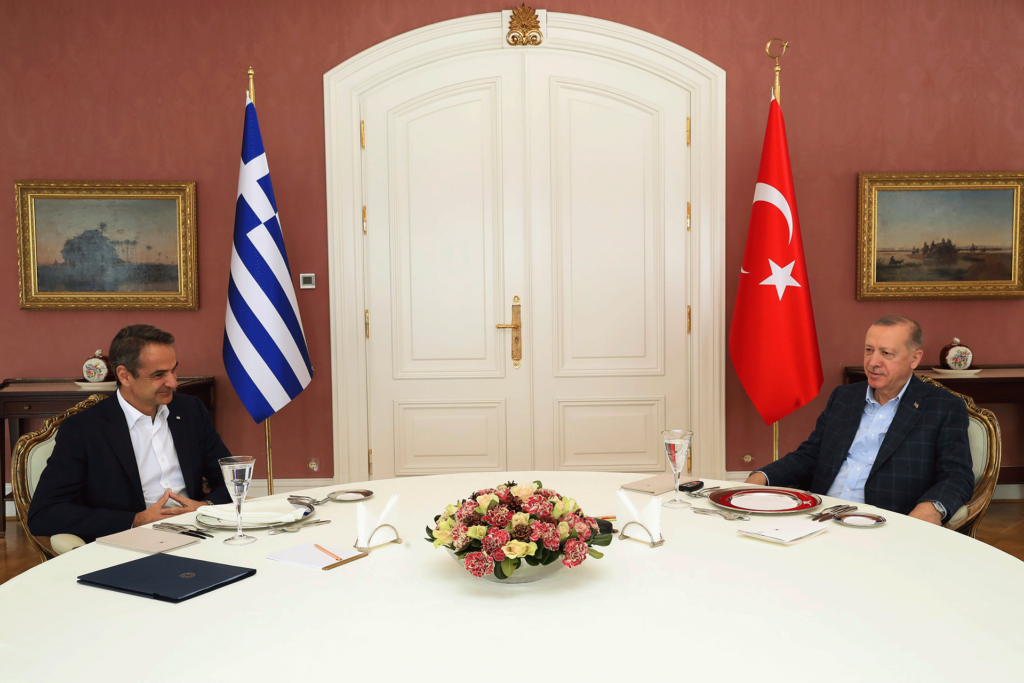Greek Turkish Relations Talks at the NATO Summit: Key Meeting in The Hague
Key Discussions on Greek Turkish Relations Talks
The upcoming NATO Summit in The Hague in late June 2024 will host crucial Greek Turkish relations talks. This significant meeting between Greek Prime Minister Kyriakos Mitsotakis and Turkish President Recep Tayyip Erdoğan is anticipated on June 24th and 25th. Most importantly, this will be their first face-to-face encounter in nine months, following their last meeting in September 2024 at the UN General Assembly.
During a recent TV interview, Greek Foreign Minister Giorgos Gerapetritis confirmed the likelihood of the meeting, though formal arrangements are pending. Diplomatic sources suggest the meeting is virtually guaranteed, featuring key players such as foreign ministers and diplomatic advisors. Therefore, should the meeting not occur, it would represent a substantial setback in efforts to ease Greece Turkey diplomatic tensions.
Tense Atmosphere Surrounding Greek Turkish Relations
Since the summer of 2024, Greece Turkey diplomatic tensions have escalated, exacerbated by incidents like the one in Kasos and Turkey’s reaction to the Crete-Cyprus electricity connection. These issues have postponed the Supreme Cooperation Council meeting originally scheduled for January. Because of Turkey’s objections to Greece’s role in the SAFE mechanism and marine park announcements, these topics will likely dominate the Mitsotakis Erdoğan meeting agenda. Despite potential conflicts, both leaders are expected to project a semblance of cordial relations.
Meanwhile, Ankara’s focus is on President Erdoğan’s potential visit to Washington. Conversely, Athens aims to resolve issues concerning the Monastery of Sinai and bolster relations with Libya’s governments. Setting a date for the next Supreme Cooperation Council meeting remains the primary unresolved issue. Recent talks in Ankara have laid the groundwork, addressing cooperation in disaster response, illegal immigration, and potential agreements in tourism, trade, transport, and innovation.
Ultimately, the timing of the Council meeting will hinge on decisions made by Mitsotakis and Erdoğan during their meeting in The Hague. A date might be set by the end of July, though some diplomats remain skeptical, suggesting a later date or even a postponement until September, possibly coinciding with another UN General Assembly meeting.
Regardless of the outcome, a meeting between Greek Foreign Minister Gerapetritis and his Turkish counterpart, Hakan Fidan, is expected at the NATO Summit, focusing on planning the next steps in Greek Turkish relations talks. They will also discuss Cyprus ahead of the informal July meeting in Geneva.
Opening New Doors with the EU Black Sea Strategy
The European Commission’s new EU Black Sea strategy positions Turkey as a vital partner, emphasizing its role in EU maritime policies. This strategy aims to redefine EU-Turkey relations. However, it raises concerns about normalizing Turkey’s authoritarian regime as a key geopolitical partner, potentially overlooking Greek and Cypriot interests.
Although the EU’s Black Sea strategy references international law and member state rights, it prompts questions about the balance between EU’s foreign policy realism and complicity. Critics argue that Turkey’s actions often contradict its roles, maintaining ambiguous ties with Russia and leveraging maritime agreements for its benefit. This stance might jeopardize EU credibility and send a message that geopolitical interests outweigh institutional values.
By engaging with Turkey in the Black Sea and the Mediterranean without clear accountability mechanisms or commitments to human rights and sovereignty, the EU strategy risks becoming another episode of European self-deception. For an overview of the historical context of Greek-Turkish relations and key events shaping the current diplomatic landscape, this BBC article offers valuable insights. Additionally, for more up-to-date information on escalating tensions, The Guardian article provides depth to understanding the current situation.




